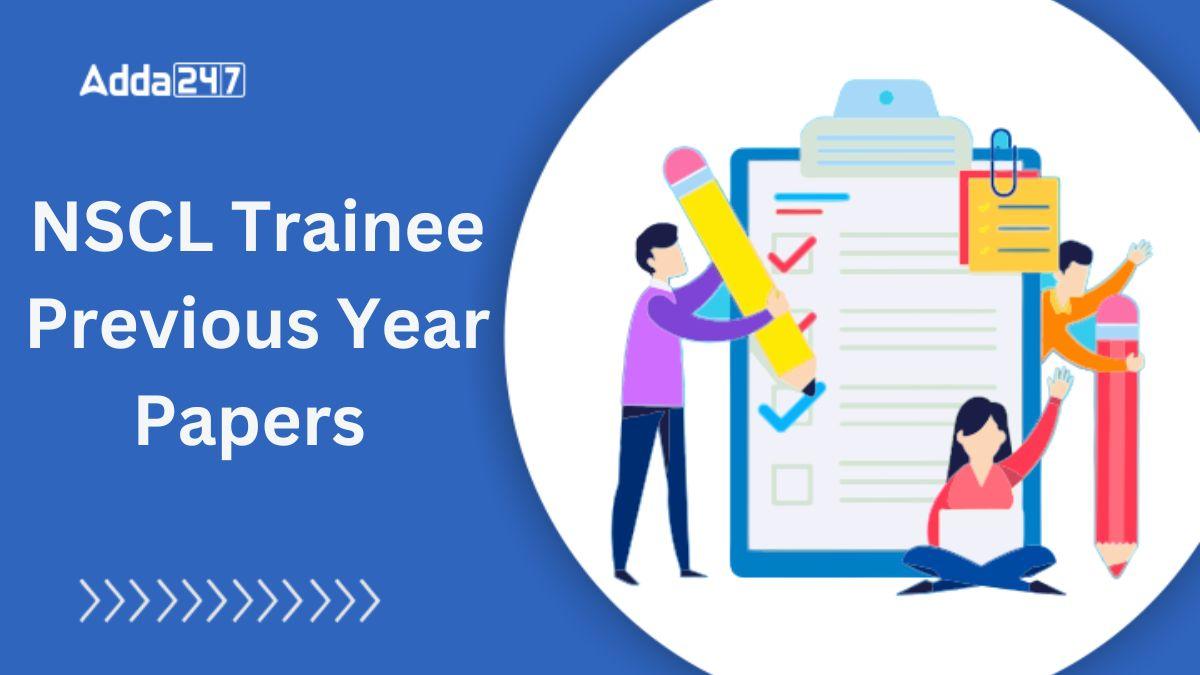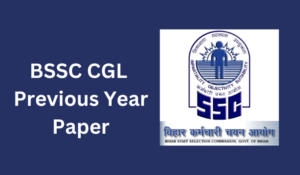Table of Contents
NSCL Trainee Previous Year Question Papers are valuable resources for understanding the exam pattern and the types of questions asked in the National Seeds Corporation Limited Trainee Exam. These papers provide candidates with insights into the structure of the exam and the level of difficulty they can expect. Accessing these question papers in PDF format is essential, as it helps candidates analyze the variety of questions and track any changes in the exam’s complexity over time. By incorporating these papers into their preparation strategy, candidates can significantly enhance their readiness for the exam.
NSCL Trainee Previous Year Question paper Overview
Candidates who want to prepare with NSCL Trainee Previous Year Question Paper must know the overview shared in the table below
| NSCL Overview | |
| Exam Conducting Body | National Seeds Corporation Limited (NSCL) |
| Exam Type | Written Exam |
| Category | Previous Year Question Paper |
| Official Website | https://www.indiaseeds.com/ |
NSCL Trainee Previous Year Question Papers: Download Free PDF
Practicing with NSCL Trainee Previous Year Question Papers is crucial for improving candidates’ accuracy and speed in the upcoming Common Entrance Exam. These papers allow candidates to simulate a real exam environment, helping them become more familiar with the exam format and time constraints. By downloading the NSCL Trainee Previous Year Paper PDFs from the links provided below, applicants can effectively enhance their preparation and boost their confidence for the exam.
| NSCL Trainee Previous Year Papers | |
| Previous Year Question Papers | Download Links |
| NSCL Trainee MATE (Agriculture) 2021 | Official Paper |
| NSCL Trainee (Store) 2019 | Official Paper |
| NSCL Trainee (Marketing) 2018 | Official Paper |
| NSCL Trainee (Agriculture) 2018 | Official Paper |
Benefits of NSCL Trainee Previous Year Question Papers
Preparing for the upcoming NSCL Trainee exam using NSCL Trainee Previous Year Papers offers numerous advantages, including:
- Comprehensive Syllabus Coverage: Understand the syllabus thoroughly through sample questions that reflect the exam’s scope.
- Performance Assessment: Evaluate your current level of preparation and track your progress over time.
- Weakness Identification: Pinpoint areas needing improvement and focus your efforts to strengthen them.
- Error Analysis and Improvement: Learn from your mistakes and refine your approach while revising.
- Time Management Skills: Practice managing time effectively to ensure you can complete the exam within the given timeframe.
- Familiarity with Difficulty Levels: Gain insights into the complexity of the exam questions, helping you prepare for potential challenges.




 UP Police Constable Previous Year Questi...
UP Police Constable Previous Year Questi...
 RPSC RO EO Previous Year Question Papers...
RPSC RO EO Previous Year Question Papers...
 BSSC CGL Previous Year Paper, Download P...
BSSC CGL Previous Year Paper, Download P...


 Adda247 Job portal has complete information about all Sarkari Jobs and Naukri Alerts, its latest recruitment notifications, from all state and national level jobs and their updates.
Adda247 Job portal has complete information about all Sarkari Jobs and Naukri Alerts, its latest recruitment notifications, from all state and national level jobs and their updates.